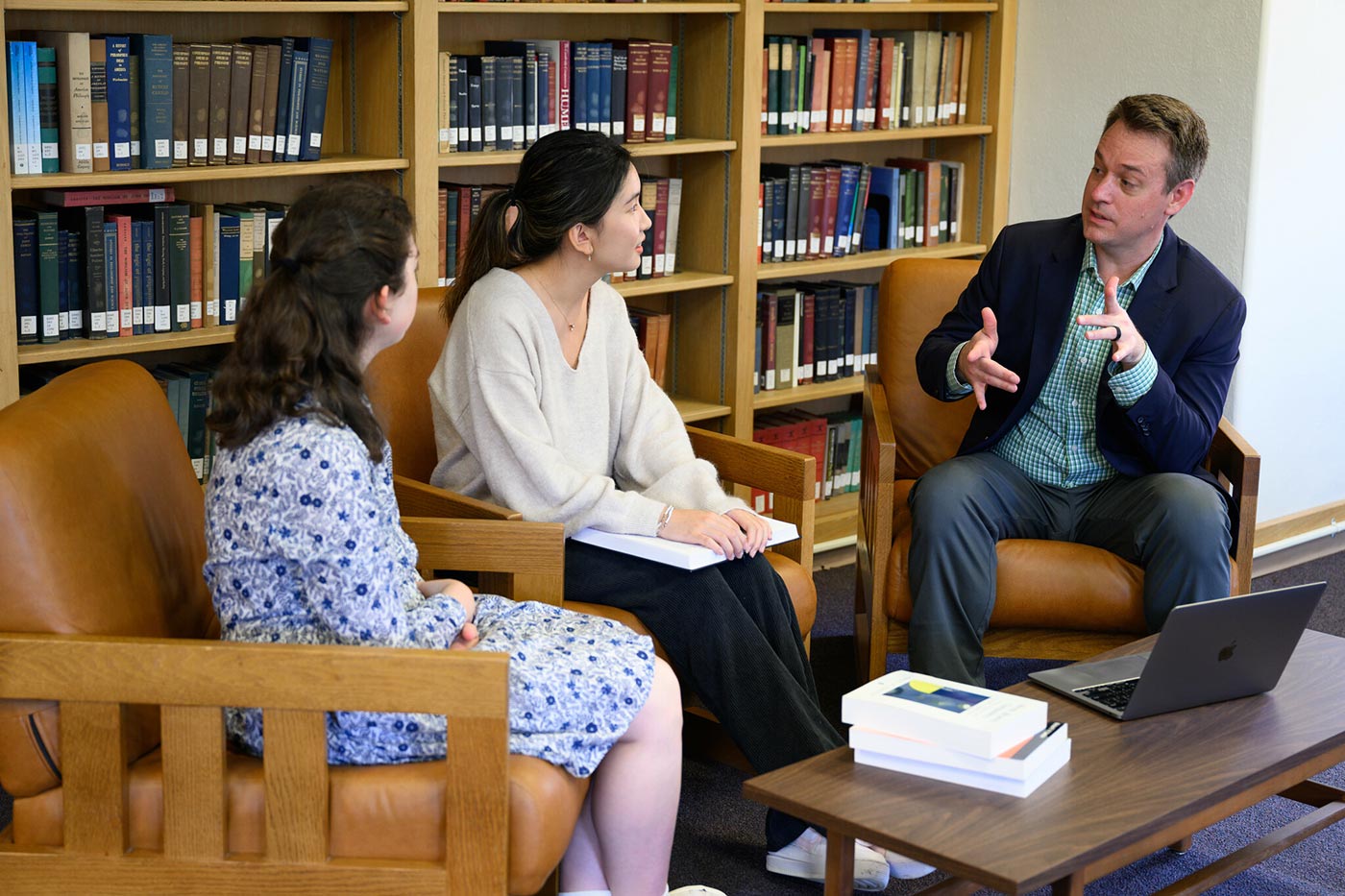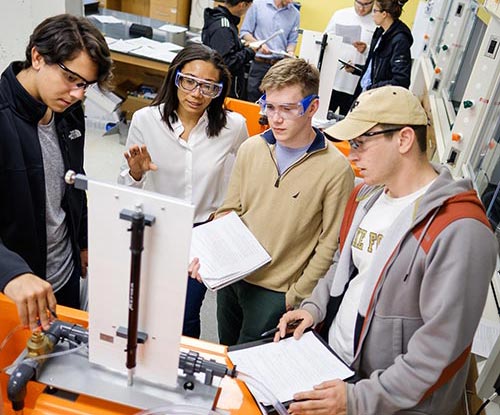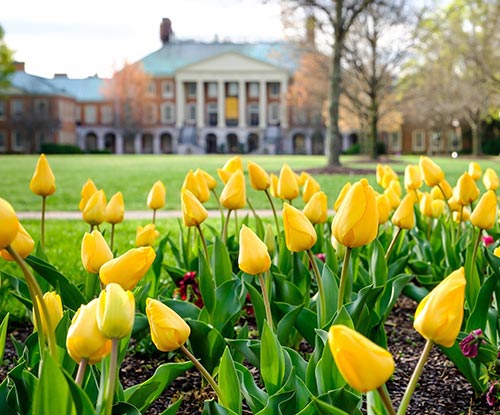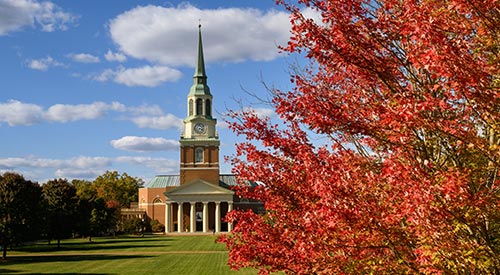Philosophy

Philosophy Degree
Bachelor of Arts, Minor
Program Type:
Major, Minor
Career Path:
Humanities
Program Site:
College or School:
Why study Philosophy?
Philosophy examines such topics as the nature of knowledge, justice, right and wrong, good and evil, persons, freedom, determinism, moral responsibility, beauty, art, and the nature and grounds of religious experience and belief.
- Philosophy majors are thriving as attorneys in the public and private sectors; surgeons; financial advisors; teachers; ministers; and sports broadcasters. Among other professions.
- Every year, the Philosophy department welcomes several guest speakers to campus. In 2024-25, topics included what society can or should do about Artificial Intelligence; the related forces of anger and satisfaction; and several others.
- Eight Philosophy majors have earned prestigious national scholarships for further study. They include two Rhodes Scholars, five Fulbright Scholars and one Marshall Scholar. Rhodes Scholar Alice Hauser (’23) majored in Philosophy and Music.
The Philosophy degree is offered as a Bachelor of Arts (B.A.) and a minor.
What classes would I take?
Our model and curriculum educate the whole person and often help students discover interests they had never previously discovered. Students generally take 100-200 level courses during their first year of college, while registering for higher level courses as upperclassmen.
Sample courses* that you may take as an Philosophy student include:
100-200 level
- Knowledge and Reality
- Meaning and Happiness
- Contemporary Moral Problems
- Medieval Philosophy
- Modern Philosophy
300 level
- Plato
- Hellenistic Philosophy
- 19th-Century European Philosophy
- Environmental Ethics
- Philosophy of Love and Friendship
* Course availability and offerings can change at any time. Refer to the Academic Bulletin to view all major requirements.
What kind of experience will I gain?
Philosophy, the subject or discipline, is not so much a body of facts as it is a way of thinking and learning. It consists of understanding and coming to intelligent and critical terms with concepts or ideas that are used to describe basic features of human experience as well as of the natural or physical world.
These ideas—sometimes referred to as Big Ideas—include, among others, concepts like the following: notions of reality and existence, matter and mind, the rational and the irrational, the meaningful, the good, the right, the just, and the sacred. Thinking intelligently and critically about Big Ideas requires powers of reason and imagination, sense and sensibility, and comprehension and judgment.
The major is designed to develop those powers or skills in students.
Students in this program will develop the following skills:
- Objectivity
- Ability to conduct research and explain results
- Capacity to effectively analyze and problem solve
- Open-minded concerning complex life questions
- Ample command of grammar and vocabulary
- Ability to formulate and support various positions
- Skillful at analytical reasoning
- Capable of integrating large amounts of information
- Values logical thought and self-expression
- Inclined to question the meaning of things
- Propensity to support thinking with facts and reason
Are there extracurricular activities?
Joining a club or organization is a great way to get involved and do more with your major. Our Philosophy students participate in the following programs:
- Neuroscience Club
- Pre-Law Council
- Bioethics Club
- Ethics and Leadership Debate Team
What kind of job can I get?
Careers that often interest Philosophy majors, and fields our graduates work in, include:
- Advertising Specialist
- Archivist
- Attorney
- Bank Officer
- Consultant
- Counselor
- Educator
- Foreign Service Officer
- Financial Analyst
- Librarian
- Journalist
- Judge
- Missionary
- Museum Curator
- Physician
- Public Relations Representative
- Publisher
Graduates include federal judges; business owners and executives; artists; religious leaders; and educators.
Related Programs

Majors & Minors
Choose from more than 50 majors and over 60 minors to find your perfect fit.

Life at Wake
Take a moment to explore all the student experiences that make Wake Forest unique.

Virtual Tour
Can’t make it for a visit? No problem! Let us show you around campus virtually.

Keep in Touch
Let us know you’re interested in Wake Forest and we’ll do the rest.

Visit Campus
You truly can’t appreciate the beauty of our campus until you experience it for yourself.

Apply
Want to be considered for our next class of Demon Deacons? Here’s how to get started.
